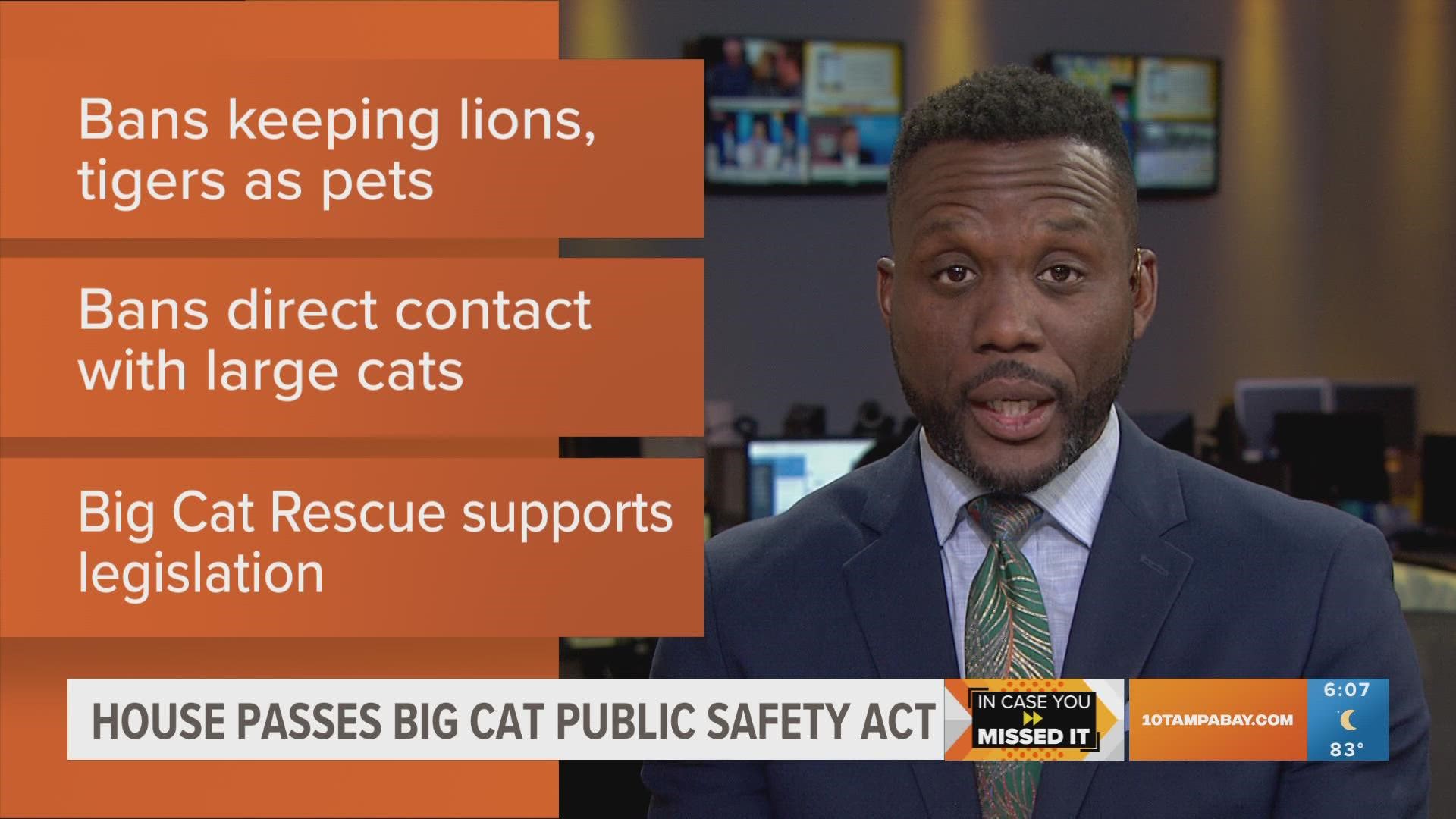WASHINGTON — The U.S. House of Representatives on Friday passed a bill banning people from keeping big cats – such as lions and tigers – as pets.
The Big Cat Public Safety Act, which was publicly supported by Tampa Bay area based Big Cat Rescue CEO Carole Baskin, would make practices like cub petting illegal by preventing the public from having direct contact with large cats.
The House vote was 278 to 134. Seven of Florida's 27 representatives voted against the legislation. All were Republicans. They included Rep. Scott Franklin, Rep. Greg Steube and Rep. Daniel Webster – who each represent parts of the greater Tampa Bay region.
The bill does, however, have bipartisan support. Nine Florida Republicans joined Democrats in pushing it forward.
It has 258 co-sponsors. But, the legislative process has not been without its roadblocks.
Democratic Rep. Michael Quigley, of Illinois, had to reintroduce the bill after it failed to make it past the Senate a couple years ago. The bill now heads again to the Senate for another round of consideration.
In recent years, conversations about such a measure have gained more attention. Most notably, the legislation was mentioned in the Netflix docuseries "Tiger King" – which featured Baskin.
"We have been working to end cub abuse and phase out private ownership of big cats since 1998," Baskin said in a recent statement to 10 Tampa Bay.
She explained that, back in 2003, a "watered down" version of the bill was passed but had loopholes for cub petting and private ownership.
"Those loopholes have caused massive suffering and have put the public and first responders in harm's way for no reason other than to line the pockets of those who breed, exploit and discard tiger, lion and liger cubs every 3 to 4 months," she said recently.
In a news release, the Humane Society of the United States called big cat ownership an "epidemic," saying "untold numbers" of captive large cats are living as pets or kept in small, barren cages at "shoddy roadside zoos."
"They are improperly fed, are not provided with appropriate veterinary care, and have no means to express their complex emotional and behavioral needs," the Humane Society wrote. "Cubs are ripped away from their mothers to be offered to paying customers for feeding and petting sessions and for photo ops. Keeping big cats in these settings is not only inhumane but is also a serious public safety issue."
In the last 30 years, the Humane Society said there had been at least 100 "dangerous and cruel incidents" involving big cats that were being kept as pets or in private menageries.
"Among them, a juvenile tiger wandered in a Houston neighborhood in 2021 and an escaped pet cougar was found lounging in a driveway in Parkland, Florida, in 2019," the organization wrote.
Editor's Note: The below interview is from 2020.

